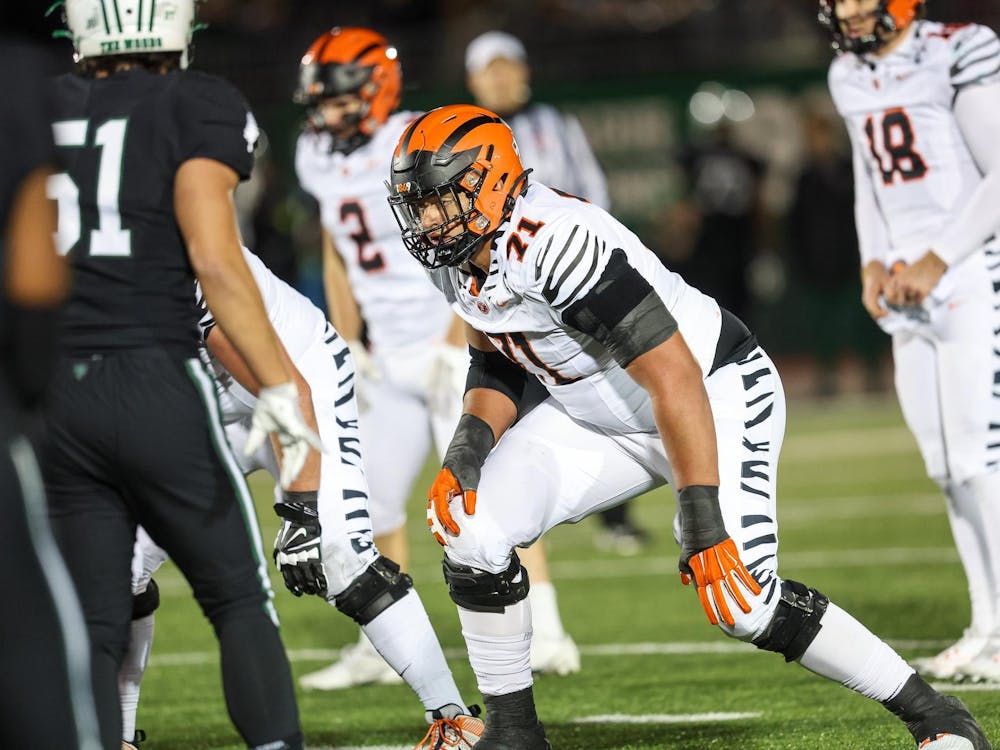When the field hockey team hoisted the NCAA championship trophy at Old Dominion last week, it was the culmination not only of a storybook season but also of years of close calls and missed opportunities.
The Tigers had reached 17 NCAA tournaments before this season and had twice played in the title game, losing to North Carolina in 1996 and Old Dominion in 1998. Though the team has put together an unprecedented string of Ivy League championships that has been interrupted just once since 1994, 2012 was the first time it was able to break through for a national championship.
Princeton made it look easy this season, losing just a single game and winning its eighth straight Ivy League championship. The Tigers had close calls against top-notch opponents like Maryland, whom they twice defeated by one goal — once in the regular season and again in the semifinals — but as dramatic as their championship run was, it was not unexpected. All season, the Tigers were one of the teams to beat.
“I think everyone else in the country knew we had a lot of talent,” head coach Kristen Holmes-Winn said. “I think you saw every university trying to respond to what they knew we had coming back.”
Coming back were four players whose absence last year might have made all the difference. Junior striker Michelle Cesan, senior midfielder Katie Reinprecht, junior midfielder Julia Reinprecht and senior striker Kat Sharkey missed the entire 2011 season to train with Team USA.
The Tigers still shared the Ivy League title with Yale and made the NCAA tournament, but they exited witih a first-round loss to Connecticut. Without the stars there to shoulder the burden, a relatively young team was forced to grow up fast.
“All the girls last year, including seniors, fought hard and performed under pressure,” Holmes-Winn said. “I really think it started for us last year in just being able to get the very most out of our team.”
Nevertheless, the return of Sharkey, Cesan and the Reinprechts changed the landscape of the NCAA, according to Holmes-Winn, who believes that it forced other schools to bring in new talent. One example was North Carolina’s Charlotte Craddock, a forward who transferred to Chapel Hill from the University of Bristol in her native England. She had played at the highest level possible, as the youngest member of England’s 2008 Olympic team. Connecticut turned to similar tactics and assembled a roster complete with eight international players, including two British graduate students.
Princeton’s success in the face of this opposition, capped with the defeat of Craddock and the Tar Heels in the championship, cannot be chalked up to just one factor.
“You have to have this incredible balance of chemistry and talent and a little bit of luck,” Holmes-Winn said. “And those three pieces need to be working in absolute harmony.”
The talent was there. Sharkey and the Reinprechts were recently named first team All-America, continuing a long run of All-America honors for each, and Katie Reinprecht was named the National Player of the Year. Cesan and junior goalkeeper Christina Maida were named to the second and third All-America teams, respectively.
The chemistry was there, too. Aside from the obvious bond between the Reinprecht sisters, the team was led by a group that had fought hard together before. The players had never failed to capture an Ivy League title, and many of them had played together before Princeton.

The Tigers came into 2012 knowing what they could do, but there was one thing they could not control: luck. It had not been on their side in previous years. In 2010, Katie Reinprecht broke her leg, and Cesan, Alyssa Pyros ’12 and then-freshman defender Amanda Bird also missed time with injuries. Considerable depth got the Tigers to the quarterfinals, but in the end these losses were too much to bear. Avoiding injuries was a must for this year’s team.
Next year, the Tigers will play without what was perhaps their greatest class ever. Still, they have proven their ability to bounce back, and Holmes-Winn, who has now played or coached in six final fours, is confident she will see another in 2013.
“We’ve got an extraordinary freshman class this year and a great class coming in,” she said. “We’ve got tremendous leadership in our junior class. I have a ton of faith in what those guys are capable of. Our rising junior class is extremely heavy with talent — you look at [midfielder] Syndey Kirby and [striker] Allison Evans, players who you haven’t seen a lot from yet, but they’re working really hard.”
They may have big shoes to fill, but next year’s team will benefit from the knowledge that Princeton, ever-dominant in the Ivy League, has what it takes to be the best team in the nation.







